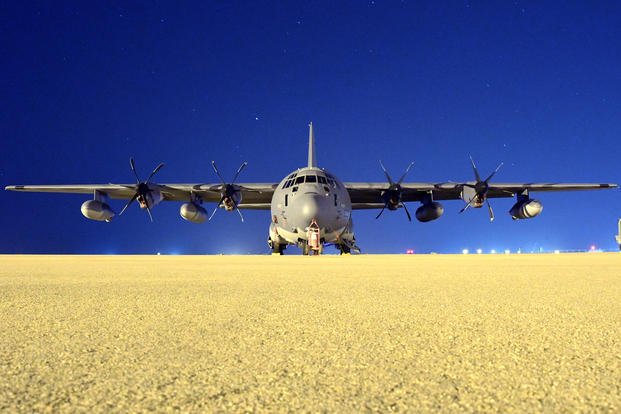
The Air Force on Wednesday announced six bases selected to house new Air Task Forces — an experimental reorganization aimed at changing the way airmen train ahead of deployments as geopolitical conflicts and tensions rise in the Pacific, Middle East and Europe.
The new model, billed as a pilot program, will send nearly 50 people to each of the six bases this summer as part of a command element, which will integrate with existing units on each post and from the surrounding areas to form an Air Task Force. They will end up training, working and deploying together.
Locations selected to host those Air Task Forces, or ATFs, include Davis-Monthan Air Force Base in Arizona; Scott Air Force Base in Illinois; Joint Base San Antonio and Dyess Air Force Base in Texas; Seymour Johnson Air Force Base in North Carolina; and Fairchild Air Force Base in Washington state.
Read Next: Air Force Pilot Who Died After Aircraft Ejection Seat Misfire Identified by the Service
“As part of a pilot program, the following installations are expected to receive an ATF command echelon this summer, pending the successful completion of the National Environmental Policy Act process,” the Air Force said in a statement. “This is a step toward forming the new Air Force combat wings as Units of Action.”
The command element coming to each of those bases will be the Air Task Force’s leadership team and will include a colonel who will serve as the commander, a lieutenant colonel as deputy commander, and a senior enlisted leader who will serve as command chief master sergeant.
They will be supplemented with an “A-Staff” that will include experts from manpower and personnel, intelligence, operations, logistical, plans and requirements, and communications, according to an Air Force fact sheet.
Also comprising the Air Task Force is a Combat Air Base Squadron and Mission Generation Force Elements with attached Mission Sustainment Teams, all provided by one of those six bases or from the surrounding areas.
Air Force Secretary Frank Kendall announced the concept of Air Task Forces in September at the Air and Space Forces Association’s conference, calling it “a major step in the right direction.”
The idea is to integrate a command element with existing personnel at certain locations so they can work and train together ahead of deployments instead of putting a group of individuals together from a wide variety of bases and assignments.
Those Air Task Forces will deploy as part of the service’s new rotational schedule called Air Force Force Generation, dubbed “AFFORGEN,” which gives airmen 18 months to rest, prepare and train together before heading out for a six-month deployment.
Two of the new Air Task Forces will be for U.S. Central Command and one is for U.S. Indo-Pacific Command, according to the Air Force. Those three Air Task Forces will come from three of the newly named bases, and will be rotated out by the units from the other three installations.
Those Air Task Forces will enter the new deployment cycle this summer and “will be prepared to be deployed beginning fiscal year 2026,” according to the Air Force.
In February, Air Force and Space Force leaders announced they were restructuring — from names to organizations — major parts of the Department of the Air Force in a move they hope will make them better equipped for “great power competition,” a phrase used by the Air Force and the wider military to explain new spending and strategy to counter threats from other nations in various regions of the world, such as China in the Pacific.
“We need these changes now; we are out of time to re-optimize our forces to meet the strategic challenges in a time of great power competition,” Kendall said in February.






